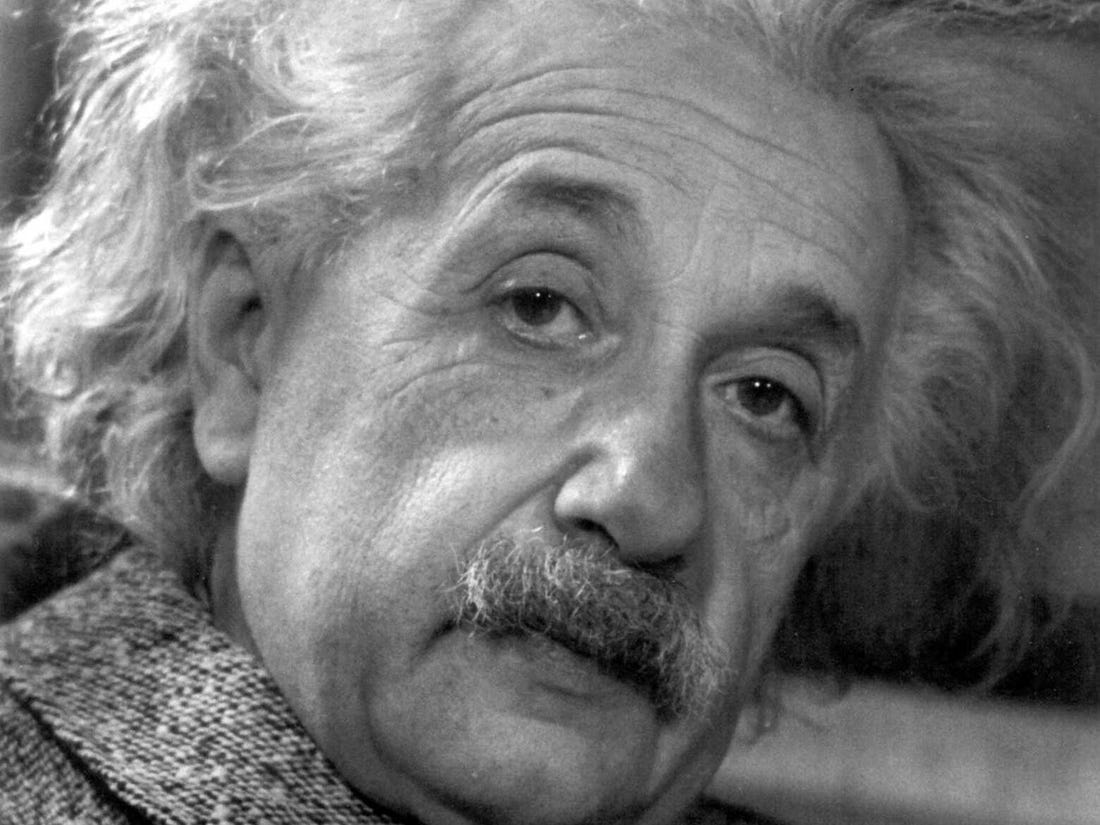
We might not understand all that Einstein discovered, but from the things he has said we can glean some of his thought process and perhaps use that to instruct our students in math.
“It’s better to be amazed than to understand,” he once said. I wondered if he meant. Do we stress out to find the right answer and forget to enjoy the quest? When I was at UCLA I made a short film on antimatter, a physics subject. My advisor was Julian Schwinger, a Nobel prize winner. He assigned two of his post-docs to help me. I remember walking with them through the UCLA sculpture garden to the film building in north campus and how fascinated they were by all the sculptures they saw. They didn’t “understand” them, but they couldn’t stop talking about them. This was new part of campus for them and they were in awe. How do we nurture this same sense of wonder in our students when they encounter a new math problem? Impossible? Maybe not.
Do we, ourselves, go out of the way to encounter new things? Or do we follow the same routines every day? Eat the same foods? Talk to the same people? Watch the same shows on television? Do we see virtual learning an exciting challenge?
As an experiment let’s eat something different for dinner. Introduce yourself to someone new. Read a book instead of watching television.
Yes, we could make a mistake. We might create a tasteless dinner, meet an unappealing person, or read an obnoxious book. But by not making the attempt, we will never discover a great dish, meet someone fascinating, or uncover an idea that could leave us, well, amazed.
So how does this help our students in math?
Our willingness to embrace new ideas in all aspects of life becomes an example and will help our students to properly approach their math lessons. We let them know that it’s okay to make a mistake and will encourage them to approach a problem differently to find a solution.
Our students will learn that math is more than finding the slope of a line or the volume of a prism. Math teaches a way of thinking. This is not something to learn after we mature and grow up. Actually, when we grow up we must backtrack and learn to become more child-like, to find qualities we had and lost when were very young. Let’s never lose that wonder we see in children’s eyes when given their first balloon or ice cream cone. If our students are amazed when they learn how tessellation works or cherish that “ah hah!” moment when they solve and understand a difficult algebra problem, they will go far in math… and in life.
More words from Einstein
“I sometimes ask myself,” Einstein once said, “how it came about that I developed the theory of relativity. The reason, I think, is that a normal adult never stops to think about problems of time and space. These are things that he thought of only as a child. But my mental intellectual development was less advanced than others. As a result I began to wonder about space and time only when I had already grown up.”
Einstein was certainly NOT less advanced when he was younger. He just never lost that sense of wonder that he had as a child. We can help our students not lose it either. They might not become the next Albert Einstein, but they can become better at math.

WOW…amazing. I love this.
Me, too, Blu…..